Consumerism is killing the planet; there is a huge percent of the population that just collect stuff…for the sole purpose of just having more stuff… Around the globe stuff is piling up in garages, wardrobes, beauty cabinets, spare bedrooms, basements and so on – it’s an epidemic.
People are collecting more and more stuff and not considering the consequences of their big pile of stuff. All that stuff has been manufactured somewhere, and there is a high chance that it has been made in a manufacturing factory that takes advantage of cheap labour – stripping away human rights. All that stuff has been made with something, and sadly there is a high chance that the planet has been killed and polluted in the process. Then what about the disposal of all that pointless stuff, it’s got to go somewhere – so to get rid of all that stuff we pollute our planet with toxic landfills. Oh the story of stuff – I could go on and on! But I won’t.
The fact that you’re reading my blog, there is a high chance that you care….you care about yourself….the planet…..and about everything else that matters. If you are seeking ways to live better, healthier and more sustainable, I have put together a quick list of some of the things you can do to ensure you live more green and leave a positive impact on our planet.
Buy Recyclable
Help create a demand for more recyclable products by buying products that can be recycled, this will in turn send a message to those manufacturers who do not currently make recyclable products. It will force big companies to up their game, reminding them that if they want any chance of their business surviving in the future they will have to spend the money and invest in finding ways to produce recyclable products. More and more recyclable products are coming into the market place, when shopping always look for products that can be recycled.
Recycle Your Rubbish
Yes sounds like common sense doesn’t it! I thought so to, until I moved into a row of terrace homes with a shared rubbish room. We have recycle bins, garden bins and regular bins – well people are damn lazy – every day I see bottles and cardboard just thrown in the normal bin. I mean seriously all you got to do is choose a bin to throw it in – CHOOSE THE RECYCLE BIN – IT DOESN’T GET EASIER THAN THAT. Sorry this is something that infuriates me, because it is so simple to do – people are just thoughtless and lazy. I have two bins in my kitchen, one for recyclables and one for general waste. I find it is an easy way to keep them separate and it makes recycling effortless.
Choose Sustainable Products
Buy local, organic, fair trade and free from animal cruelty. Choose products that are made with and from products that have had no negative impact on our planet in any stage of the manufacturing process. If you are unsure then do your research, choose to be a conscious shopper and be fully educated about where your products come from. Some sustainable materials include bamboo, organic cotton and hemp. It is also a good idea to try and buy second hand products at thrift stores and garage sales, after all somebody else’s junk is another’s treasure – and you will be reducing landfill in the process. Choose to support local growers and manufacturers and also support farmers and communities in less wealthy countries. Buy products that are labelled fair trade, not only will you help promote sustainable farming practices, you’ll also help prevent rainforests from being further cleared and destroyed (these are animal homes).
Buy Less Stuff
Clever marketing campaigns try to tell us that we need this and we need that. Money and marketers set the fashion and trends, without us even knowing we let others tell us what we like and what we should have. Become a savvy and conscious shopper, make a commitment to buy less stuff and only buy stuff that comes from an ethical background. By buying into all the disposable fashions and trends you are unknowingly supporting unethical practices – sadly many of those mainstream manufacturers and shops are using unsustainable manufacturing methods. Think before you buy.
Detox Your Life
Buy non-toxic cleaners, paints and beauty products. Stick to the basics for housecleaning – there is nothing wrong with eucalyptus oil, baking soda and vinegar (at least they don’t pollute our water ways). Replace personal products for more natural alternatives that contain little or no preservatives, this is not only good for the planet it is also better for your health. Use organic and toxic free fertilisers and lawn food, as the chemicals get washed down the drain or seeped into the soil and it all destroys our planet. To get inspiration on how to Green Your Beauty Routine take our free 30 day challenge
BYOB (Bring Your Own Bag)
Look for products you can take home unwrapped or that come with little packaging. Packaging is just a marketing ploy and it is doing damage to our planet. Try and avoid bagging your fruits and vegetables in those clear and pointless bags, and make sure you buy and use recyclable bags (they are no good sitting in the boot of your car). Take your own bag everywhere; this will help to dramatically reduce the amount of plastic bags that end up in landfill, found knotted up around native animal feet or in the ocean every year.
BYOM (Bring Your Own Mug)
When you go to get your morning coffee at the café down the corner bring your own mug. There are some really trendy cups on the market at the moment – take advantage of them. This also goes for water, purify water at home and refill your bottles.
Buy It In Glass
When buying something ask if it comes in glass. Buy your milk, juice and sauces in glass bottles. When possible choose cold beverages that have been either packaged in glass bottles, if that is not possible opt for aluminium cans. Avoid plastic whenever possible, for it’s not good for your health and it is super hard to dispose of.
Compost: It’s Easier Than You Think
Do what the good folk of Vancouver do and install a compost bin in your kitchen, on your city balcony or in your backyard. It’s easy, cheap, clean and your plants will thank you. Use your homemade compost to nourish your garden and house plants or donate it to your local community garden. If you live in the city and think you can’t compost – think again – here is a wonderful article on how to compost in the city
Reduce Paper Consumption
Think before you print. Can you send that two line memo via an online document as opposed to printing it off? Try and print as little as possible. Switch to e-billing for bank statements and bills. Buy 100% recycled paper for everything from printing paper, envelopes, napkins, lunch bags and toilet paper. If you have to do presentations reduce paper notes and get in the habit of using PowerPoint, offer to email a copy of notes after the presentation to the people who attended. It sounds small and insignificant; however one person can make a dramatic difference.
Reduce Energy Consumption
Switch to energy saving light bulbs or use compact fluorescent lights; they use less energy, last 10 times longer and save you money on your quarterly power bill. Install solar panels where you can, a great starting point is solar lights for your outdoor areas, walkways and gardens. Consider installing a programmable thermostat so your home doesn’t chew up unnecessary energy. Use your dryer less and change the filter regularly. Use cold water for washing clothes and buy energy efficient appliances with four stars or more. Try shutting the doors to rooms to use the energy from the heater and air conditioner more efficiently. After leaving a room get into the habit of turning off the light. When making a cup of tea only fill the kettle with as much water as you need, don’t boil a full kettle for just one cup of tea!
Buy Organic Where You Can
Fertilisers that we put on our food crops not only leave a nasty chemical residue on the food we eat which wreaks havoc with our health, the chemicals also leach into the soil destroying the quality of the soil. Believe it or not, all chemicals from crops travel vast distances through the soil and into waterways, which results in the killing of natural habitat, wildlife and the poisoning of our oceans.
Reduce Water Use
When brushing your teeth don’t let the water run and go to the extra effort of having a half and full flush system installed on your toilet. Reuse water when you can, for example bath water or cooled pasta water can be used on your plants. Invest in a small rainwater tank , yes it is a small investment but it makes a huge impact on the environment and your garden will thrive on the fresh rainwater.
Reduce Your Carbon Footprint
Walk, ride, take public transport, or carpool everywhere. By walking or riding you improve your fitness and reduce your carbon footprint. Whether it is once or twice a week or every day, it all makes a difference. So you’re not physically fit enough to walk or ride both ways, then walk or ride one way and catch the bus home.


